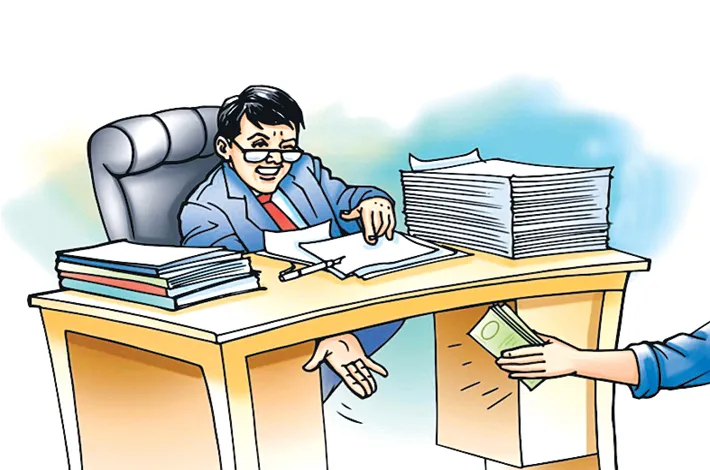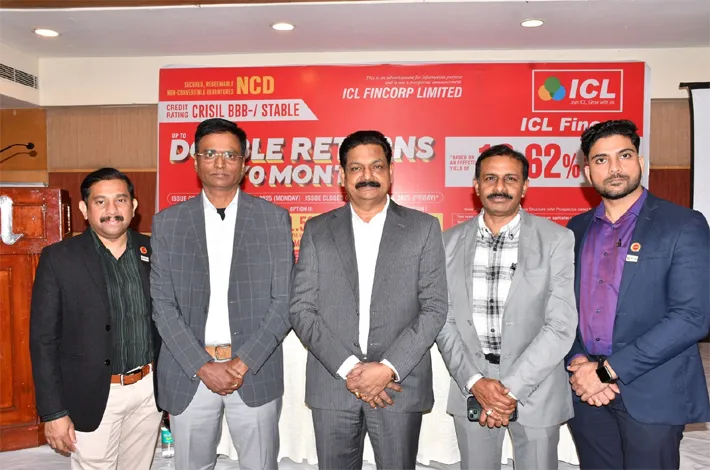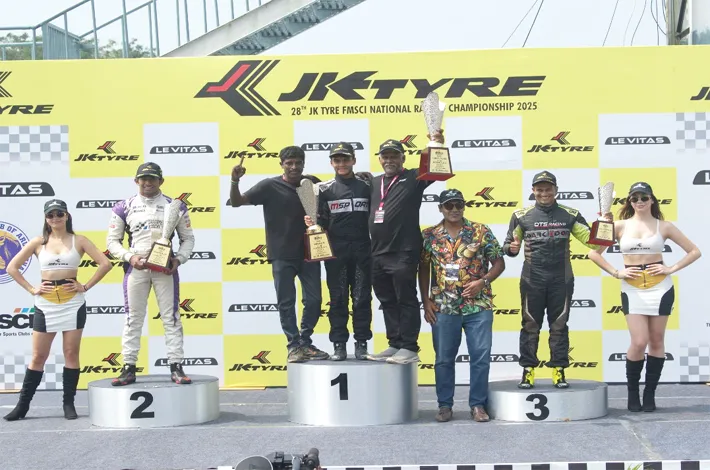The Broken Dreams of Hyderabad’s Builders
08-07-2025 12:00:00 AM

The market was already bleeding, with property prices plummeting to 50% of their value from two years ago. Buyers were scarce, and his investors were growing restless. Where was he supposed to find Rs. 25 lakhs?
metro india news I hyderabad
In the sprawling city of Hyderabad, once a beacon of booming real estate, the dreams of many layout builders now lie buried under the weight of bureaucracy, corruption, and a market in freefall. The real estate sector, which fueled the city’s growth for decades, is in tatters.
Developers who poured their life savings into projects, collecting advances from hopeful investors, now find themselves trapped in a quagmire of unfinished ventures, dwindling funds, and a government system that seems to thrive on their misery. At ground zero, one such builder’s story paints a vivid picture of the systemic rot that has left Hyderabad’s real estate dreams crumbling.
Meet Ravi Kumar (Not the real name), a 45-year-old layout builder who once rode the crest of Hyderabad’s real estate wave. With over two decades in the industry, Ravi had earned a reputation for delivering quality residential layouts on the city’s outskirts. In early 2023, he embarked on an ambitious project—a 50-acre layout in a promising suburb, backed by advances from eager investors dreaming of their own slice of Hyderabad’s growth. But two years later, the project remains a skeletal outline of unbuilt roads and unsold plots, a monument to the city’s broken real estate ecosystem.
The trouble began when Kumar approached the local government office for clearance to develop his layout. Armed with meticulous plans and a firm grasp of regulations, he was confident the process would be straightforward. The layout adhered to all zoning laws, including buffer zones around a small nalla (stormwater drain) running through the property. “I wasn’t asking for favors,” Kumar recalls, his voice heavy with frustration. “I just wanted them to follow the rules and approve the layout quickly so we could move forward.”
But at the government office, Kumar encountered a familiar yet disheartening obstacle: a mid-level officer named Srinivas (Not a real name) , known for his unyielding grip on the approval process. In a dimly lit office reeking of stale coffee and bureaucracy, Srinivas delivered the bad news with a smirk. “There’s a nalla issue,” he said casually, as though it were an insurmountable hurdle. Kumar, well-versed in the rules, countered that the layout complied with all buffer zone requirements. The officer’s demeanor shifted. Leaning back in his chair, Srinivas laid out his real demand: a bribe of Rs. 25 lakhs. “Payable after the work is done,” he added, as if it were a generous concession.
Kumar, no stranger to the unspoken “fees” that grease the wheels of bureaucracy, offered Rs. 10 lakhs, the standard bribe under the previous government. But Srinivas scoffed. “Times have changed,” he said. “Hydra has tightened things up, and we have more people to pay off now—higher-ups, you know. Plus, with the real estate market down, we’re getting fewer projects. We have to make up for it.”
The mention of “Hydra,” Hyderabad’s urban development authority, was a thinly veiled justification for the inflated bribe. For Kumar, it felt like a punch to the gut. The market was already bleeding, with property prices plummeting to 50% of their value from two years ago. Buyers were scarce, and his investors were growing restless. Where was he supposed to find Rs. 25 lakhs? Determined to fight the injustice, Kumar took his case to the local MLA, hoping for intervention. But the meeting was a bitter disappointment.
The MLA, a portly man with a reputation for grand promises, listened patiently before delivering his verdict: Rs. 25 lakhs upfront, plus additional payments to the officers. “That’s how things work now,” he said, shrugging. Kumar’s heart sank. The cost of navigating this corrupt system was now higher than ever, and in a market where sales were nearly impossible, the upfront payment was a death knell for his project.
Exhausted and disillusioned, Kumar returned home to discuss the situation with his family. His wife, Lakshmi, urged him to hold off. “The market is bad, and these people are vultures,” she said. “Why sink more money into a losing battle? Wait for better times.” His elderly father, a retired engineer who had seen Hyderabad’s real estate boom in its heyday, agreed. “The system is broken, Ravi. You can’t fight it alone.” Defeated, Kumar made the painful decision to shelve the project. The land, once a symbol of his ambition, now sits untouched, a silent testament to his shattered dreams.
Kumar’s story is not unique. Across Hyderabad, countless developers face similar struggles. The real estate market, once a goldmine, has been battered by economic slowdowns, policy changes, and a lack of buyer confidence. Projects that were greenlit with fanfare now languish, with developers unable to recover even half their investments. The government’s promises of reform ring hollow at ground level, where officers and politicians exploit the desperation of builders like Kumar. The introduction of Hydra, meant to streamline urban development, has instead become a convenient excuse for inflated bribes, as officials claim they must share the spoils with a wider net of superiors.
For the investors who trusted Kumar, the wait continues. Many are middle-class families who sank their savings into plots, hoping for a secure future. Now, they bombard Kumar with calls, their frustration mounting as their dreams of homeownership fade. “I feel like I’ve betrayed them,” Kumar admits, his eyes glistening. “But what can I do when the system is against us?”
As Hyderabad’s skyline continues to rise in pockets of affluence, the untold stories of builders like Ravi Kumar reveal a darker reality. The city’s real estate sector, once a symbol of progress, is now a battlefield where corruption and bureaucracy crush ambition. For Kumar, the future is uncertain. He dreams of a day when the market recovers and the system cleanses itself of greed. But for now, he waits, his project frozen in time, a casualty of a city that has lost its way








